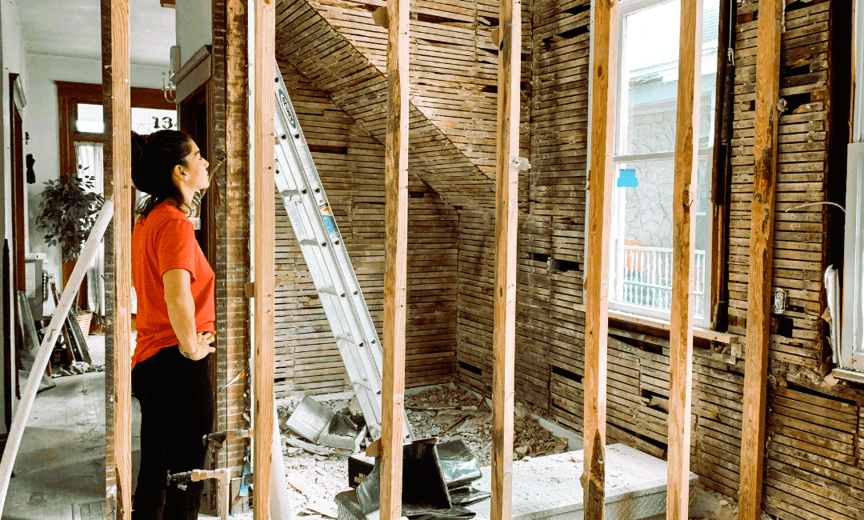In the ever-evolving landscape of sustainable living and energy efficiency, Canadians are increasingly looking for ways to upgrade their homes while minimizing environmental impact and maximizing cost savings. One avenue that has gained prominence is the utilization of rebates, which play a crucial role in incentivizing homeowners to invest in eco-friendly home improvements. This article delves into the various rebate programs available to Canadians, shedding light on how they contribute to both environmental conservation and financial savings.
The Importance of Home Upgrades
Home upgrades serve a dual purpose in enhancing the quality of life for residents and reducing the overall environmental footprint. Canadians are becoming more aware of the impact their homes have on energy consumption, greenhouse gas emissions, and resource utilization. Consequently, there is a growing interest in adopting energy-efficient technologies and eco-friendly practices.
Rebates as Catalysts for Change
Rebate programs act as catalysts for change by encouraging homeowners to make environmentally conscious choices. These programs are often initiated by government bodies, utility companies, and environmental organizations that recognize the pivotal role homes play in the overall sustainability agenda. Rebates come in various forms, including financial incentives, tax credits, and discounted products or services.
Understanding the Canadian Landscape

Canada, with its diverse climate and geographical regions, has implemented a range of rebate programs tailored to meet the specific needs of its residents. Provinces and territories may have distinct programs addressing local environmental challenges, such as extreme weather conditions or unique energy sources. Additionally, the federal government of Canada plays a role in coordinating nationwide initiatives to promote sustainable living.
Popular Rebate Programs in Canada
- Home Energy Rebate Program (HERP)The Home Energy Rebate Program, offered by many provinces, focuses on enhancing the energy efficiency of homes. Homeowners can receive financial incentives for installing energy-efficient appliances, upgrading insulation, and adopting smart home technologies. The program aims to reduce energy consumption and, subsequently, lower utility bills.
- Renewable Energy Tax CreditsCanadians investing in renewable energy sources, such as solar panels or geothermal systems, can benefit from tax credits at the federal and provincial levels. These credits not only encourage the use of sustainable energy but also contribute to the national goal of reducing dependence on fossil fuels.
- Water Conservation RebatesSome provinces offer rebates to homeowners who invest in water-efficient appliances and fixtures. These initiatives address the importance of water conservation, especially in regions prone to drought or facing water scarcity challenges.
- Electric Vehicle Charging Station RebatesWith the growing popularity of electric vehicles (EVs), several provinces provide rebates for the installation of EV charging stations at residential properties. This encourages the adoption of cleaner transportation options and contributes to the reduction of greenhouse gas emissions. Do you like the article? Read also about Windows of Opportunity.
Case Studies: Realizing Savings through Rebates
To illustrate the tangible benefits of rebate programs, let’s examine two hypothetical case studies of Canadian homeowners who leveraged available incentives to upgrade their homes.
Case Study 1: The Johnson Family
The Johnson family, residing in Ontario, decided to take advantage of the provincial Home Energy Rebate Program. They invested in energy-efficient windows, upgraded their HVAC system, and installed a smart thermostat. In return, they received a substantial rebate, significantly reducing their upfront costs. Moreover, the family experienced a noticeable decrease in their monthly energy bills, showcasing the long-term financial benefits of their eco-friendly choices.
Case Study 2: The Patel Residence
The Patel family, living in British Columbia, embraced the trend of electric vehicles and decided to purchase an EV. By leveraging the provincial rebate for EV charging stations, they installed a home charging unit. The rebate not only covered a significant portion of the installation costs but also contributed to the overall cost-effectiveness of owning an electric vehicle. The Patels now enjoy lower fueling costs and contribute to the reduction of air pollution in their community.
The Role of Standardization in Rebate Programs

Ensuring the effectiveness and fairness of rebate programs requires standardization in the eligibility criteria, application processes, and evaluation metrics. Standardization enhances transparency, simplifies the application process for homeowners, and facilitates the monitoring of program outcomes.
For reliable information on the eligibility criteria and application procedures of various rebate programs, homeowners can refer to reputable sources such as the Canada.ca website. The website provides a comprehensive overview of federal programs, with links to provincial and territorial resources, ensuring that Canadians have access to accurate and up-to-date information.
Conclusion
As Canadians increasingly recognize the importance of sustainable living, rebate programs emerge as vital tools in promoting eco-friendly home upgrades. By offering financial incentives, rebates make these upgrades more accessible to a broader audience, thereby accelerating the transition to a greener and more energy-efficient housing sector. Canadians interested in participating in such programs should consult reliable sources like Canada.ca to stay informed about available rebates and contribute to a more sustainable future. Unlocking savings through rebates not only benefits individual homeowners but also contributes to the collective effort to build a more environmentally conscious society.
For more information on Canadian rebate programs, please visit Canada.ca.





